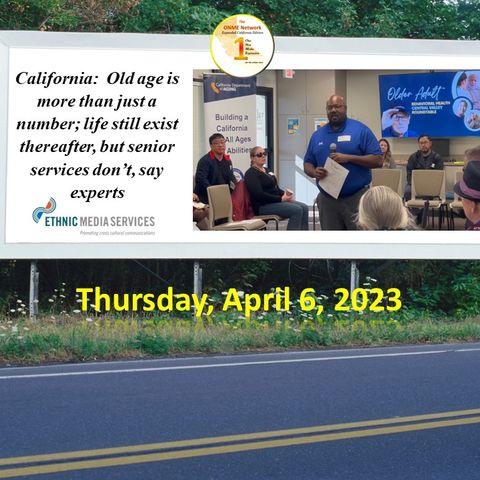News Too Real: Old age, more than just a number; life still exist thereafter, but senior services don't, say experts

Download and listen anywhere
Download your favorite episodes and enjoy them, wherever you are! Sign up or log in now to access offline listening.
Description
According to https://www.ourbodiesourselves.org/subject-area/growing-older/?gclid=Cj0KCQjwuLShBhC_ARIsAFod4fLet3UijosyLe3RAURSJitUEJR9YJVHSLpE7YUZotFv_e_zSmtCKDsaAty8EALw_wcB, a collaboration of the Center for Women’s Health and Human Rights at Suffolk University and the nonprofit organization, Our Bodies Ourselves, stated, "In the United States, we’re...
show moreThe website reference continued to note that our society is not prepared for this aging of the population and the opportunities and challenges it will bring.
In this edition of News Too Real, show host, Julia Dudley Najieb reviews the March 29, 2023, In an Older Adult Behavioral Health Central Valley Roundtable held in Fresno, Calif., Inclusion & Equity, Not Isolation Is a Priority Goal of California’s Master Plan for Aging. The candid discussion was meant to be the first of many discussions throughout California. Community partners discussed, listened, and learned about the challenges around older adult behavioral health. Because the COVID-19 pandemic has had a devastating emotional impact on older adults and their families – compounded by historic racial injustice and health inequities, California leaders are now eager to hear directly from older adults and communities of color about their well-being. They are extremely concerned about data that suggests older adults (65+) are the least likely to report receiving mental health care (21 percent) compared to all other age groups.
Information
| Author | INFO Media Distribution |
| Organization | INFO Media Distribution |
| Website | - |
| Tags |
Copyright 2024 - Spreaker Inc. an iHeartMedia Company

Comments